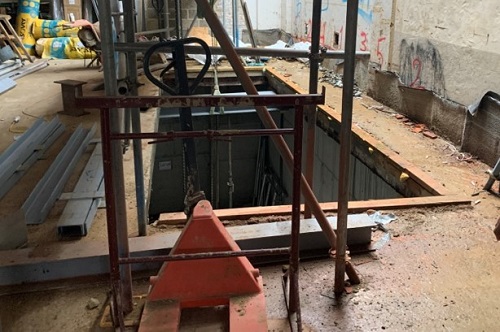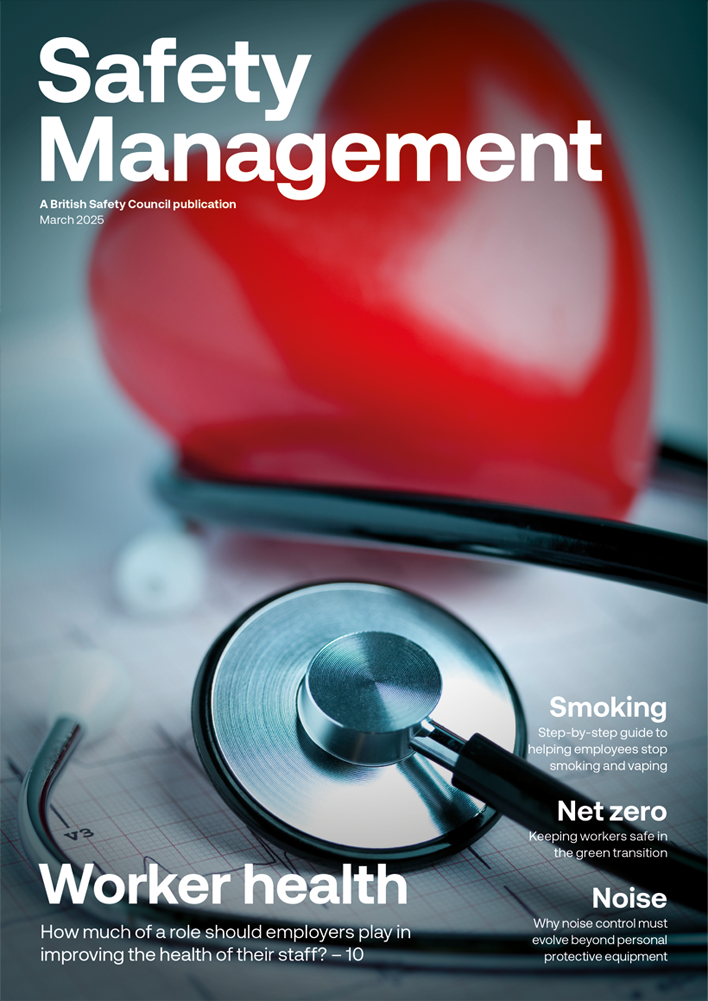Universal Safety Assurance is a new approach for sharing mutual compliance information using blockchain technology, a step towards increased contractor safety.
Prosecutions
Intelligent safety
What would you do, if you had the ability to avoid work-related incidents?
According to reports by the United Nations, 2.78 million employees were killed worldwide in 2017 – the equivalent of 80 fatal jumbo-jet crashes every day, while over 374 million were non-fatally injured. The puzzling fact is that this is happening even though global businesses are spending billions of dollars every year implementing safety protocols and complex management systems including risk assessments, method statements and safety training.
Despite all the governance in place, there isn’t enough safety assurance or ways to connect people’s safety reputation directly to their work, especially with contractors’ safety and other external stakeholders in the supply chain.
It is not just a moral problem; it is a real money problem. In the UK alone, workplace injuries are estimated to be costing £15 billion annually, and and that is just the direct costs. More worryingly, it has failed to show any downward trend since 2009, remaining broadly flat ever since.
There must be a way to bridge the gaps of inconsistent systems, lack of visibility of safety performance and the increasing disenfranchisement of individuals’ ownership.
Cost of trust for sharing compliance information
If it were easy, everyone would get it right in the first place. However, that’s not the reality. Sharing information among external stakeholders remains a real burden for all parties involved. The cost of trust is only increasing, while the complexity of IT systems is not getting any simpler.
Is there a way to create a common language for the supply chain to share critical safety information?
What if distinct organisations trusted each other to share compliance information mutually?
Safety and employee engagement
Beyond process-based safety governance, there has been a recognition in recent years that safety isn’t just about checkboxes and systems; safety programmes alone do not work.
Despite this, execution of an alternative has been haphazard at best. The holy grail of workplace safety is to have people who are carrying out the work taking full ownership of both their own safety and that of those around them.
In other words, a truly engaged workforce – both of direct and indirect labour – where individuals are in possession of their safety reputation, are committed to improving it and can take it from employer to employer. This would swing data ownership and engagement in safety to where it needs to be: with the frontline workforce.
Safety processes will always be required, of course, but soon they will exist in a ‘connected’ format that will make possible, for example, knowledge of the following:
- how committed individuals are during safety-related activities
- how engaged they are with co-workers
- if they feel responsible, accountable and rewarded for their positive safety behaviour.
This describes a world that moves from top-down safety governance to bottom-up safety assurance, and is only made possible today with the emergence of blockchain technology.
Emerging technologies for safety assurance
Just as industry evolved from mechanisation in the 18th century, to mass production and then computerisation, we are once again witnessing a new wave of disruption: industry 4.0 and the rise of connectedness.
‘Smart’ is everywhere — smart cities, smart transportation, smart buildings and smart devices. Safety management, and particularly safety assurance can now make a giant leap forward, entering a new era of enablement through blockchain technology.
Digitising previously paper-based processes is only the beginning of this evolution. The focus is now to develop a real synergy between these different components of the ‘smart’ digital world such as artificial intelligence, the internet of things, blockchain technology and cryptocurrencies.
Purpose-built platforms and applications under development, such as the BeSure Network, will allow companies to do jobs faster, cleaner, cheaper and with significantly improved efficiency.
More important will be the impact on workplace safety assurance in the very near future, as all elements of the safety chain can be connected, automated using conditional logic and artitficial intellligence, and securely stored on an immutable, open distributed network.
Universal Safety Protocol
Blockchain technology is emerging as a solution for managing stakeholder’s safety and quality assurance. It can help to better manage the associated risks of health and safety practices and provide intelligence with real-time visibility of performance.
To explore the maximum potential, it is necessary to look at the following dimensions:
- Next-generation Workers Engagement, Reward and Recognition (network) — an open digital network to build individuals safety reputation and knowledge through the ownership of a personal safety passport and a social utility that connects workers with their working environment. This will allow them to own and be recognised for their individual contributions to safety culture in the form of a safety reputation point, motivating and engaging everyone to conform.
- Universal Safety Assurance Protocol (platform) — by leveraging blockchain technology in conjunction with existing environment, health and safety software, members of the Blockchain Network benefit significantly from better inter-company collaboration and higher productivity. They can share critical safety data with full privacy in cases of conflict resolution or insurance negotiations, saving time and money for all parties involved.
- Intelligent Safety Services (services) — the ultimate goal is to verify and organise compliance information and audit trails, then apply Artificial Intelligence to early detect and avoid incidents before they ever happen, protect against reputation damage and potentially save people’s lives.
The business case for organisations who are members of Blockchain Network relies heavily on real-time visibility of performance from third parties’ health and safety procedures, quickly finding anomalies in process and people compliance, and the ability to influence workers’ behaviour across the world.
For safety and operational professionals with significant health and safety obligations to discharge, it enables real-time safety assurance in fragmented industries with inconsistent systems. It is a social utility that connects workers with their working environment, allowing them to own and be recognised for their individual contributions to safety culture in the form of safety reputation.
In summary, with better data and people engagement comes a golden opportunity for intelligence. It’s possible to detect and avoid work-related incidents before they ever occur. To achieve that, be sure to build trust with employees, contractors and suppliers to share critical safety data and mutual compliance information and be sure to drive accountability for individuals’ safety reputation and put business in control of risk exposures across the entire supply chain. Finally, be sure to leverage AI technology to predict risks and alert compliance issues.
For the future
In a world of digital transformation, we have the opportunity to bring together the best ideas around safety assurance and worker engagement, using the new technology landscape that blockchain brings, and provide a meaningful shift in visibility, ownership and action around safety.
Ben Churchill
Chairman
Pedro Pereira
Ben Legg
Non-executive directors
BeSure
PROSECUTIONS

Property firm fined £63k after ignoring repeated warnings about dust exposure
By Belinda Liversedge on 19 March 2025
Exposure to large amounts of silica dust was among a “catalogue of failures” at an east London construction site, a court heard.

Skiing company fined after boy killed in tobogganing collision
By Belinda Liversedge on 12 March 2025
An indoor skiing company has been fined £100,000 after a schoolboy at a tobogganing party was killed when he ploughed into a member of staff.

Network Rail fined £3.75 million after two track workers killed by train
By Kerry Reals on 17 February 2025
Network Rail has been fined £3.75 million over the deaths of two workers who were struck by a train while carrying out track maintenance in 2019.



